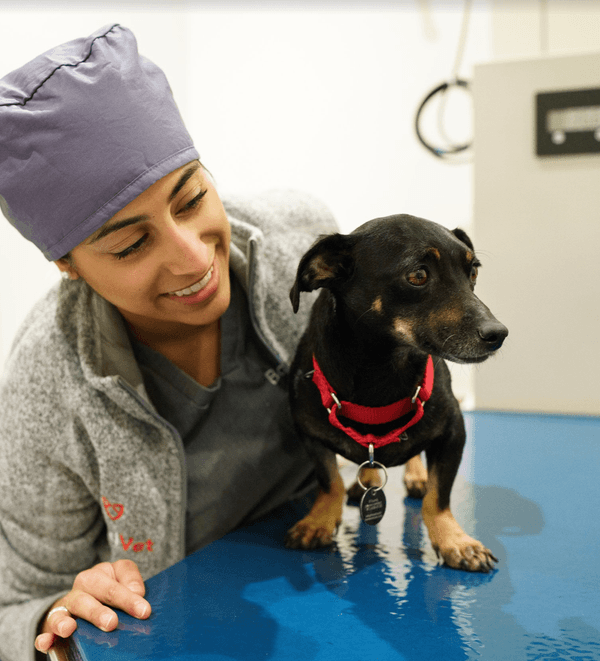
Everything You Need to Know About Giardia
Not to be confused with everyone’s least favorite Empire State airport, Giardia is a parasite that causes an intestinal illness known as giardiasis. While somewhat common in both humans and animals—over 2000 cases are reported in New York every year—giardiasis is generally not considered life-threatening but can be damaging if left untreated.
Giardiasis is a messy business, so let’s dive into some fast facts to help protect your pet against this parasite.
What Is Giardia?
Giardia is a microscopic parasite that can infect humans and animals (including cats and dogs) to cause giardiasis, a diarrheal disease. Once a host is infected, Giardia takes up residence in the intestines and is passed through digestive waste to spread to others. Outside of the body, it can be found on contaminated surfaces, food, or, most commonly, water that has been contaminated with infected feces. Giardia can survive up to weeks or even months outside a body.
SEE ALSO: The Vaccinations Your Dog Really Needs in NYC
How Is Giardia Transmitted?
Giardia can be transmitted in multiple ways, the most common of which is through contaminated water. That means anything from ice or beverages made from water, to water sources like swimming pools (it’s chlorine-tolerant), lakes, ponds, or streams – and your local dog park. Giardia can also be spread through contact with an infected host or by ingesting the parasite after picking it up or inhaling it from infected surfaces or food.
Giardia can appear in any of seven different genotypes. Animals and humans tend to be infected with different forms, so there’s generally little risk of spreading between you and your pet. However, given an animal’s inquisitive nature, there are plenty of ways for it to be shared between them—think drinking from a puddle, eating poop, chewing on sticks, or digging through their litter box—especially in a multi-pet household.
What Are Giardia Symptoms?
In humans, giardiasis typically manifests through diarrhea, vomiting, weight loss, gas, cramps, and dehydration. The majority of infected pets do not show signs of the illness, but young animals and older pets are typically more prone to exhibiting symptoms. And when they do, let’s just say that the result is highly unpleasant. Having giardiasis for extended periods of time can lead to weight loss, further illness, and in extremely serious cases, death.
What Can I Do to Protect My Pet?
As with most illness, your pet’s best protection against giardiasis is prevention. Unlike other parasites that can harm your pet, there aren’t preventative medications to protect your furry friends from Giardia, so disinfection and monitoring is critical. The most important step you can take is to provide your pet with constant access to fresh, clean drinking water. Giardia thrives in water, so it’s important that your pet’s drinking water is replaced frequently and sanitized.
Since Giardia also spreads through both surfaces and contact, it’s critical to maintain general cleanliness and hygiene on the areas you can control. That means cleaning toys, pet beds, your hands, and other various surfaces that your pet comes into contact with regularly, as well as cleaning up their waste immediately. Areas with high pet traffic like parks or daycare may increase your pet’s chance of exposure to the parasite. To avoid issues, try to keep an eye out for behavior that could increase their risk of contracting the disease, like drinking from puddles or sniffing other animal’s poop.
How Is Giardia Treated?
If you suspect that your pet has giardiasis, you should contact your trusted vet immediately for testing. Your vet will likely conduct several tests to determine if your pet is infected and will create a treatment plan based on the severity of their case. Again, giardiasis generally does not usually carry a serious prognosis, but it’s critical to seek treatment for your pet at the first signs of symptoms to minimize the risk.
Sources:
https://www.cdc.gov/giardia/about/?CDC_AAref_Val=https://www.cdc.gov/parasites/giardia/index.html
https://www.mayoclinic.org/diseases-conditions/giardia-infection/symptoms-causes/syc-20372786
https://www.health.ny.gov/diseases/communicable/giardiasis/fact_sheet.htm
https://www.petsandparasites.org/dog-owners/giardia-in-dogs/
https://www.akc.org/expert-advice/health/the-facts-you-need-to-know-about-giardia-in-dogs/